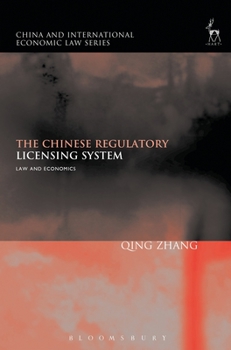The Chinese Regulatory Licensing System: Law and Economics
(Part of the China and International Economic Law Series)
Although business people often regard licensing requirements as a major obstacle to investment and new ventures, the development of a well-designed regulatory licensing system is also widely believed to promote social welfare. This book explores the existing regulatory licensing systems in China, particularly those typically affected by the rising of the sharing economy, and critically appraises them using a law-and-economics approach. The first part presents a general description of Chinese regulatory licensing systems. Secondly, the book discusses the design and evaluation of regulatory licensing systems by applying law-and-economics theories to three major issues: the use of licensing as a means of regulation and as opposed to other means of regulation; the setting up of standards imposed through regulatory licensing systems; and the arrangement of procedures adopted for regulatory licensing systems. Thirdly, on the basis of the above theoretical framework, this book develops a critical evaluation of current Chinese regulatory licensing systems from the aforementioned three issues. In particular, it looks at licensing regimes for three sectors: lawyers, taxis and pharmaceutical products in China. The book will be of great interest to scholars, practitioners and policymakers.
Format:Hardcover
Language:English
ISBN:1841133922
ISBN13:9781841133928
Release Date:August 2027
Publisher:Hart Publishing
Length:304 Pages
Customer Reviews
0 rating





